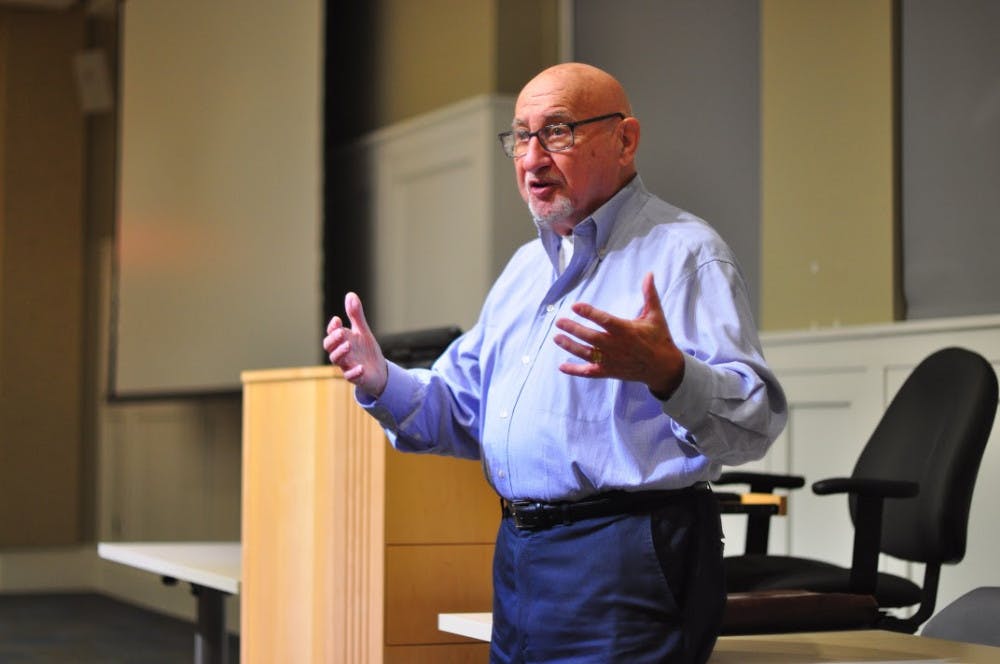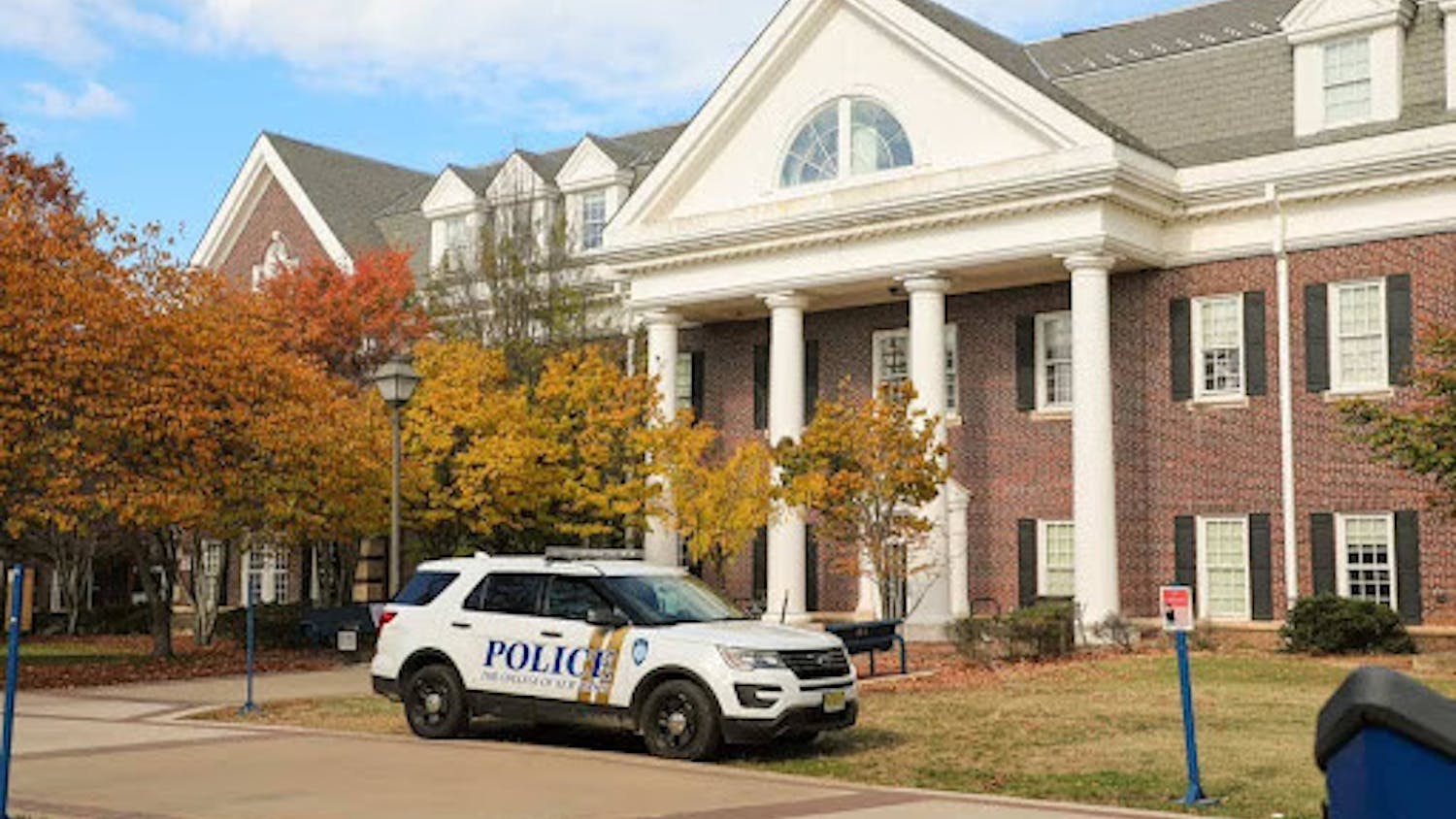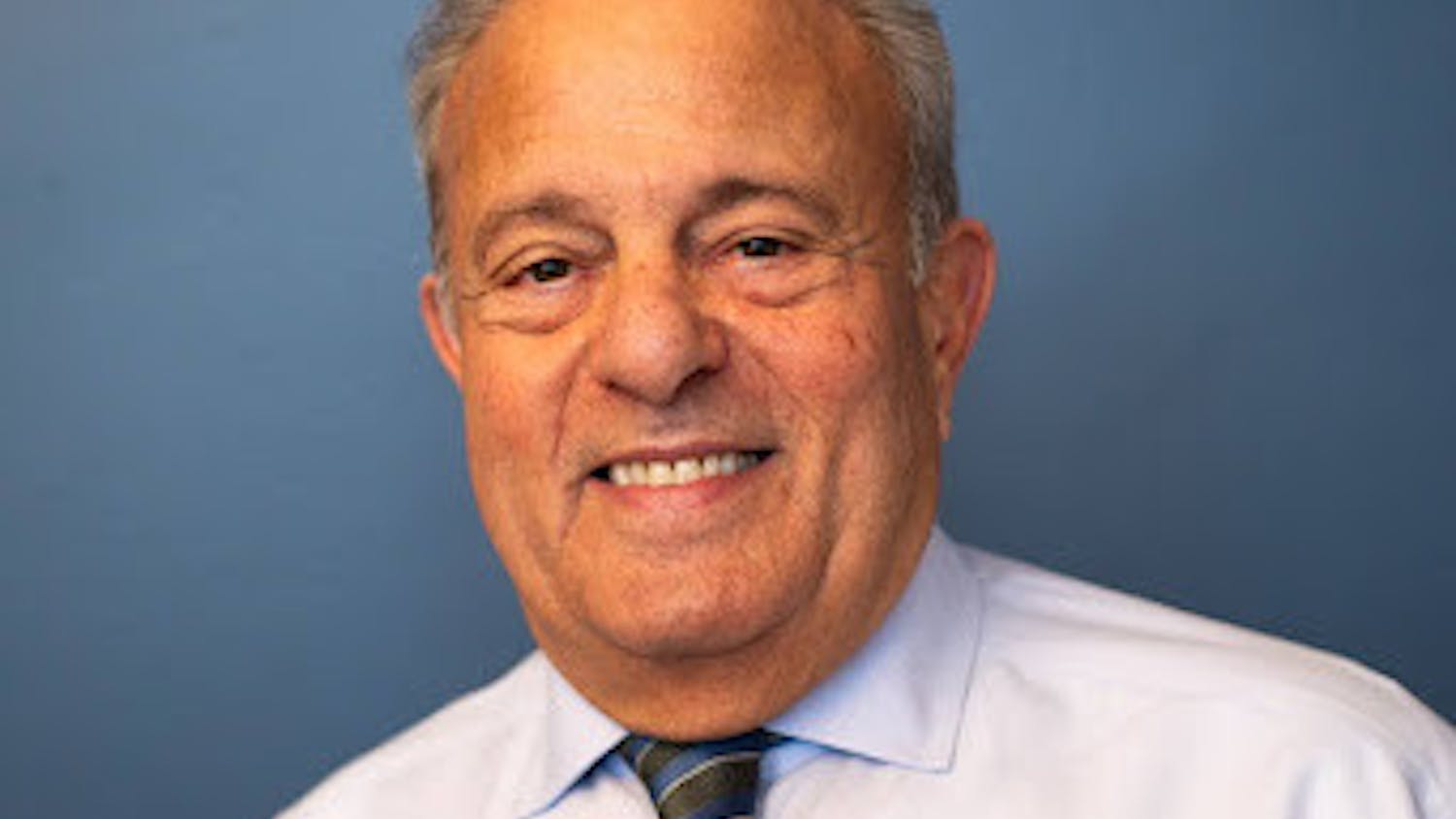By Chris Roser Correspondent
Charles Middleberg doesn’t define himself as a Holocaust survivor — he is a Holocaust witness. Middleberg discussed this differentiation alongside his experiences in France during the atrocities of World War II, on Tuesday, Nov. 3, in the Education Building, as part of Jewish Education Week, co-sponsored by Hillel and Chabad.
Poised, Middleberg said the thought of calling himself a Holocaust survivor was not enough. He said “survivor” could mean someone who survived a car accident, for example. He is a witness because he has such an important story to tell.
“My life was disrupted from the time I was a little child,” Middleberg said.
Middleberg grew up in a working class family in Paris, France, with his stay-at-home mother, watchmaker father and younger brother.
Middleberg was nine years old on Sept. 3, 1939, when France declared war on Germany two days after Germany invaded Poland. Within months, France surrendered, and things changed for Middleberg’s family.
Middleberg’s father was first bused from Paris to a “holding camp,” along with 9,000 other Jewish men. His father sent letters saying that he was “bored out of his gourd” and pitied the guards that were forced to remain with them, according to Middleberg.

A couple of years after his father was sent away, Middleberg’s life as a hidden child began. A janitor in Middleberg’s apartment building, a one-legged World War I veteran, provided a secret rooftop spot for Middleberg, his mother and brother. The janitor warned Middleberg and his family when German soldiers were about to search the building’s apartments by knocking his peg leg on the wooden floor as the soldiers got closer to the Middleberg apartment.
However, upon their mother’s insistence, a woman took Middleberg, 12, and his brother, 8, out of the city to a goat farm where they could be safe. His, mother however, wasn’t as fortunate, and later died in a gas chamber.
Eventually, Middleberg and his brother returned to the city to live with a woman and her family who had offered him shelter after learning that his mother was captured in a raid.
There, Middleberg and his brother were being dangerously hidden in “plain sight,” he said as he washed dishes in the family’s restaurant while his brother attended school.
They were even sent to a priest who baptized them, concealing their Jewish heritage to ensure their safety.
Middleberg and his brother were even instructed to tell anyone who questioned them that a bomb killed their parents and that they were orphans — it worked.
“There are, under the worst circumstances, good people,” Middleberg said.
Freshman international studies major Zach Raslin appreciated Middleberg’s ability to tell his story with humor. Raslin’s grandmother was a Holocaust witness as well, but Raslin said she was never comfortable describing her recollections to others.
“Hearing from the exact source… there’s nothing that can replace that,” Raslin said.
For over 20 years Middleberg has shared his story, but he has found it difficult to every time. However, he continues to do so.
“There are people who say it never happened,” Middleberg said. “I would like those people standing in front of me saying it never happened.”
The audience was silent.
“I saw where my mother went to the gas chamber,” Middleberg said of the trip he took back to Europe several years ago.
Seventy-six thousand Jews were taken out of Paris — including Middleberg’s mother — and never came back.
“It did happen,” Middleberg said.
Middleberg decided that he could not remain quiet and believes that if he does not talk about his Holocaust experiences, it will become just another page in history — forgotten and repeated.
“We just cannot seem to find how to live peacefully with each other,” he said. “Everybody still bleeds the same red blood.”
Diana Tenenbaum, a junior elementary education and English double major, appreciated Middleberg’s story.
“I 1,000 percent think it’s so important to remember,” Tenenbaum said.
Thanks to “small miracles,” Middleberg, his father, brother and an uncle all managed to survive.
“I know my years are numbered, but as long as I can stand and talk coherently, I’m going to keep on doing it,” Middleberg said.







